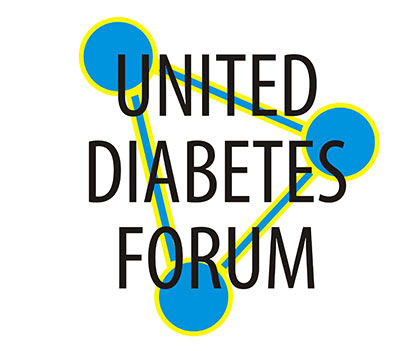
Freedom from Complications
425 million people world-wide have diabetes of which India contributes to 69.2 million people living with diabetes. According to WHO there are over 72.946.400 cases of diabetes in India. Lack of good glycaemic control and poor management awareness are likely to increase the occurrence of diabetes complications. UDF aims to plan & propagate a national program for the management and prevention of diabetes related metabolic complications where patients are made aware of the importance of routine timely tests that serves as bio- markers thereby curbing the rising burden of diabetes and improving treatment goals in India.
Fellowships in Diabetes
Diabetes epidemic is expected to cause 98 million people in India to have type 2 diabetes by 2030, with these increasing numbers we have to be well equipped with our treatment goals to ensure India becomes world capital for Diabetes Care, Prevention and Management, hence the vision of granting fellowship in diabetes where doctors are trained to treat diabetes in both urban and rural population. This initiative by UDF will help our medical fraternity to channelize treatment goals and interventions that are patient specific, prevent diabetes related complications and improve quality of life.
Foot care Certification
Diabetic foot is a distinct clinical syndrome for decades; understanding of the disease, its causation & mechanisms for progression are still evolving. Thus the key challenges revolve around 3 distinct areas - Awareness, Capacity building & better Treatment. With these objectives UDF launched The Zero Amputation Project (ZAP) where 1,000 primary care physicians across Maharashtra were trained and imparted advanced knowledge on foot care and it's preventive care including the importance of smbg. Taking a notch further UDF plans to start an online diabetic foot management course to benefit medical trainees across India.
Gestational Diabetes Certification
Prevalence of Gestational Diabetes Management (GDM), that is, diabetes diagnosed during pregnancy is also on an increase, accounting for about 4 million women being affected by GDM in India. GDM not only influences immediate maternal (preeclampsia, stillbirths, macrosomia, and need for cesarean section) and neonatal outcomes (hypoglycemia, respiratory distress), but also increases the risk of future Type 2 diabetes in mother as well as the baby. UDF hence plans to initiate an online course where medical practitioners are imparted knowledge regarding GDM, its testing and management during pregnancy.
Exchange learning programs
Diabetes is a global epidemic, approximately 425 million adults (20-79 years) are living with diabetes worldwide. With changing trends in prevention and treatment measures across the globe, UDF plans to collaborate with International institutes/ universities/ hospitals for an exchange learning program. The prime objective would be to help understand Diabetes Mellitus, its symptoms, treatment, management and prevention from our counterparts, to think globally and act locally. Young Physicians with keen interest in learning new approaches, technologies of treatment for diabetes will highly be endorsed through this program.
Diabetes Educator & Nursing Training
DENT is Diabetes Educator & Nursing Training. It is crucial to have trained, well- equipped and experienced Diabetes Care and Management team comprising primarily of Diabetologist and a health care team of Diabetes Educator, Nurse , Dietitian, Pharmacist. UDF future plans involve training health care team professionals to become qualified Diabetes educators in order to teach people with diabetes how to manage their condition and make them learn the tools and skills necessary to control their blood sugar and avoid long-term complications due to hyperglycaemia.
Improving Health Literacy
UDF plans on improvising and propagating health literacy across India. Focusing on easy to access resources needed for individuals and communities for diabetes care and management. The following programs are being implemented - ZAP (Zero Amputation Project), ROAD (Recognizing Obesity As a Disease), Blue Dot project - an initiative to identify diabetes friendly food, KIDS –a toolkit to inform diabetes in schools, HOPE – Awareness on hypoglycaemia. Thereby making people understand, appraise and use information and services to make decisions about their health ensuring better health and quality of life.
Non-Communicable Diseases
One of the leading cause of adult mortality and morbidity are non-communicable diseases (NCD). Treatment cost is almost double for NCD’s as compared to other conditions and illness. For a developing country like India prevention and reduction of NCDs becomes important to reduce health care cost. Hence the plans for reduction of NCD’s by UDF. It can be achieved through advocacy making people aware and sensitize to risk factors for NCDs namely harmful effects of alcohol, tobacco , how inactivity can cause obesity and give rise to metabolic syndrome and unhealthy diet pattern.
Heart failure registry
Heart Failure accounts for approximately 1.8 million admissions annually in India. Heart failure incidence and prevalence are rising due to unhealthy lifestyle and eating habits such as lack physical activity, smoking and alcohol abuse, high fat and sugary food consumption. UDF plans on documenting heart failure risks, treatment and management. The primary objective of the Heart Failure Registry is to describe the clinical epidemiology of outpatients and inpatients with Heart Failure and the diagnostic/therapeutic processes (including the organization of Heart Failure management programs) applied to these patients. The registry will ensure patient specific intensive treatment.
